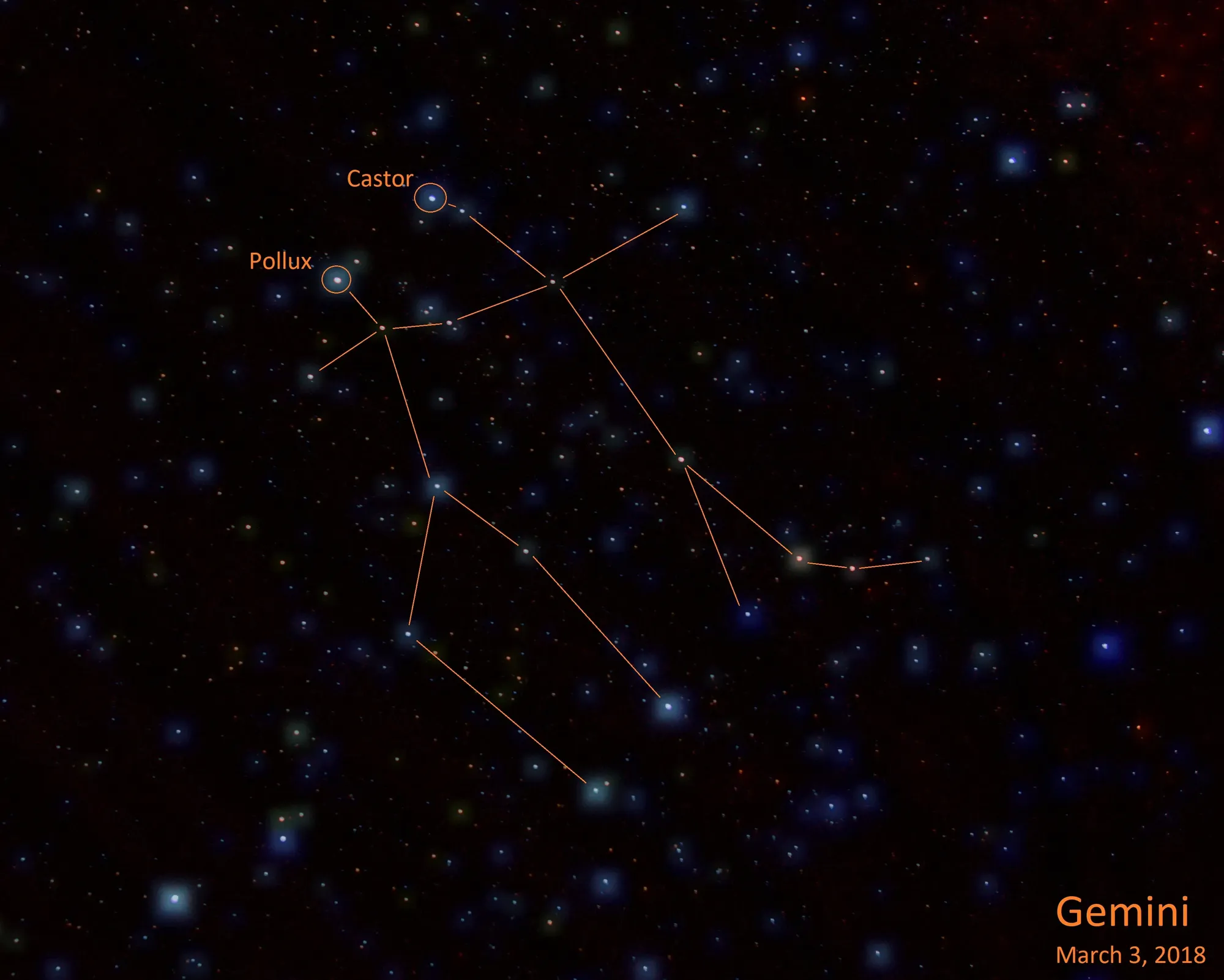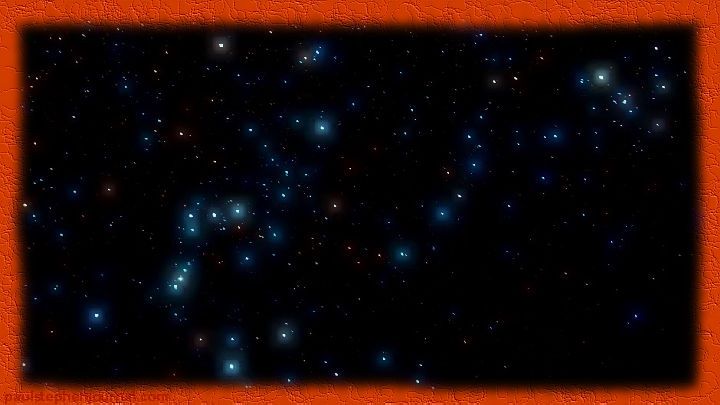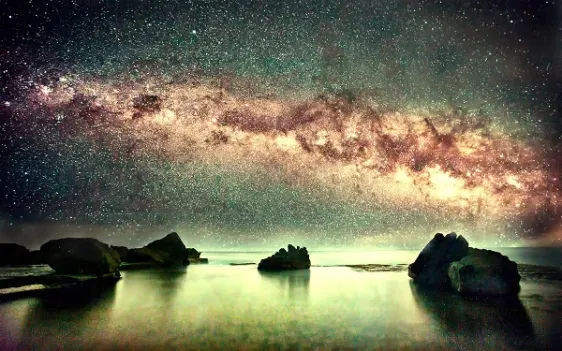The danger within this post is that you may surmise me to be a cold, logical rationalist.
I don’t believe I am anything of the sort, but that may be for you to decide.
When you look up into the sky on a clear evening, what do you see? If you cannot see anything, that may be the first problem. Perhaps you need your glasses on, or cleaned, but more likely, your vision of the Heavens is obscured by an inordinate amount of light pollution.
Hopefully you see stars. More hopefully, you see a lot of stars. They are amazing. And through most of Man’s history, they were a great mystery, surpassed only by the mystery of mortality.
Along with the stars, closer to our own solar system you may see the Moon, as well as the bright planets Venus, Mars, Jupiter, and Saturn. If you peer deeper, you might see nebulae within the Milky Way Galaxy. Those in the darkest nights will also see the arms of the galaxy itself.
When you look upon all the delights above, what do you think? What do you feel?
The night sky is remarkable, stirring thoughts of wonder and possibilities, invoking the imagination and likely, if you gaze long enough, forcing you to ask questions about your place in the universe.
You would not be alone in your reactions. Many around the world are touched by the same impressions. Undoubtedly, this cadence has endured for millennia, before recorded time.
On one level, looking into the Heavens is a deeply personal experience, especially when you are alone, at night, with only the scant sounds of nature interrupting your privacy along with the occasional gust of wind.
On another level, it can be overwhelming, to see all that there is above, way beyond Earth, indeed for all these wonders to exist irrespective of your own life.
Aren’t we all connected? Are we not of this planet, this solar system, this galaxy, this universe? Shouldn’t that connection have larger meaning?
The human mind struggles with these questions. It is difficult, if not impossible, to contemplate how so much, in fact effectively all, of the universe has existed for billions of years in the absence of you, and will continue on long after your life on Earth has ended, after the Earth itself is gone, the Sun expired, to the true end times when the galaxies produce no more light and the only matter left to decay are protons. These are disturbing realizations, when you put your mind to the philosophical task.
The Sun will continue to shine and burn regardless of whether we or Earth, or any of the other nearby planets, continue to exist. Jupiter and Saturn remain on their perpetual courses with little-to-no influence from the inner planets. And the Milky Way Galaxy, of which our Sun is one star among billions, shall remain and continue on long after our Sun burnt its last hydrogen fuel.
Where do we humans fit into the universe’s grand scheme?
Our need to admire and wonder about the cosmos must always endure. What has changed in recent history, though, is our ability to understand all this within the general blanket field of astronomy.
We can now explain the motion of objects within our solar system and the forces that interconnect them. We can discover and predict the birth and death of stars, galaxies, and the universe itself. There is still much to learn and understand, but the progress made within the last century, when considered against the entire span of human history, is astounding.
What we see in the sky is defined by astronomy. This wasn’t always understood, and in times past, without the tools provided by astronomy, the explanations of the sky defaulted to a more personable or societal level, upon the notion that the positions of cosmological objects heralded blessings and omens (relative to your side of a quarrel), and may even have had some direct message to individuals. This latter method is astrology.
When I talk to people about my interest in astronomy, they sometimes mistake it as astrology. But astronomy and astrology are diametrically opposed in their purposes and aims. I don’t believe in astrology, at all.
I should emphasize before proceeding that I won’t dismiss entirely that it could be possible humanity’s fate and your individual destiny are strongly connected to the movement of the universe. Anything is possible. It just seems, based on everything I understand as true, to be extremely implausible. And it should also be noted that this has nothing to do with faith in Divinity, for that is a different realm of philosophy and humanity altogether. Yet I believe that our quest to understand the universe is one and the same with our need to understand God, but we’ll save that, perhaps, as a discussion for another time.
What does it mean that Jupiter is currently between Antares and Saturn, with the Sun in Gemini, and you were born when the Sun was in front of Taurus? Absolutely nothing. Nothing multiplied by anything is still nothing. So it doesn’t matter when the Moon is full, or a planet is at opposition, or even if a star goes supernova. The fallacy of astrology is that all of these events mean something, either to people at large or to you specifically.
Celestial events have been used as markers of convenience throughout history. Halley’s Comet appeared in the Spring of 1066, and the Battle of Hasting happened in October of the same year. It was a blessing for the victors and an omen for the losers. You could look at the appearance of a comet, or a meteor or an eclipse, and interpret them in any way, shape, or form that will easily fit into the narrative of contemporary events.
As for the Zodiac, it’s a useful reference tool for exploring the night sky, to know, for example, that Aquarius and Capricornus sit next to each other. But it is an extreme disservice to yourself believing there is meaning written in the stars for you because of that positioning.
Do all “Leos” share something in common? Maybe, and it could be the commonality of birthdays to certain seasons of the year. Everyone who celebrates their birthdays in hot Summers may have developed a perspective apart from those who have birthdays in the dead of Winter. And because of the seasonal flip across the Northern and Southern Hemispheres, a Leo in one hemisphere will have the opposite seasonal experience to one born in the other. And then you have to take into account minor regional shifts that could nudge perspective and experience every so slightly.
These are not the workings of Fate illuminating points of light in the sky, but a component of the aggregate geographical and cultural forces acting upon all of us, both as groups and individually.
The Zodiac was once made up of twelve constellations, which all conveniently lie on the Sun’s elliptic path in Earth’s sky. And they were divided roughly according to twelve months per annum.
But through thousands of years, the expansion of the galaxy has caused the stars to shift. If the classic constellations were assigned originally by their star positions, then there are now thirteen constellations in the Zodiac path, because stars in the constellation Ophiuchus have shifted into the elliptic. Yes, constellations are not Zodiac “signs” and this is only within the Western interpretation, but the twelve signs have this origin. Ten thousand years from now, the stars will have moved so much that our current understanding of the constellations, and those part of the Sun’s elliptic, will mean little due to their positional changes as seen from Earth.
The mysteries of the universe are vast. The mysteries of the soul are even more. But the orbit of Jupiter is simply the orbit of Jupiter.
There are other places to find guidance for your life, or to understand the ebb and flow of nations and societies and cultures. Those sources are not in the sky but much closer to the ground.
I love looking up. I am the beneficiary of the toil that created the means to understand the cosmos as we do today. You are as well. Civilization is about building upon that which came before, while reaping benefits within our own lifetimes. The best service I can give to the progress of astronomy is to appreciate our sky within the context of the understanding already provided, to wonder how much more we’ll be able to achieve thanks to that chain of skill and knowledge and exploration. This realization binds my own Fate to the Heavens far more than astrology ever could.








